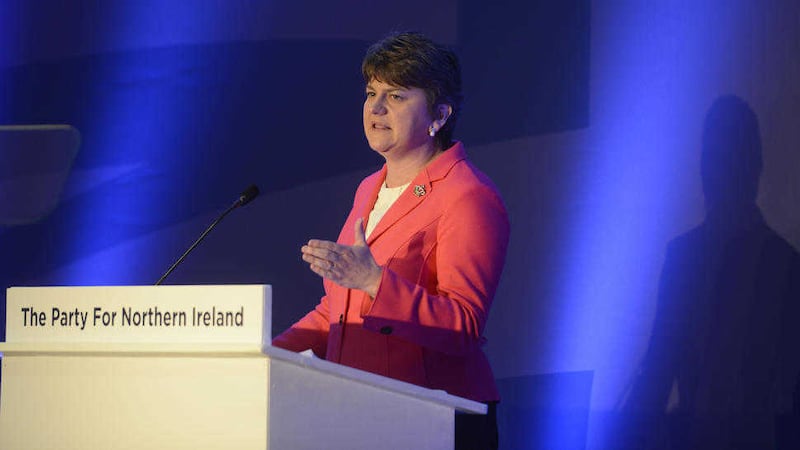IT is worth bearing in mind that when Arlene Foster defected to the DUP in January 2004 there was very little to her obvious advantage in the move.
She was a very senior figure within the UUP and liked across the party - even by those who disagreed with her views on how the party was implementing the Belfast Agreement.
She had a safe Assembly seat in Fermanagh. At that point there didn't seem to be much likelihood of the DUP and Sinn cutting a deal to save the Assembly, so it looked like her career as a DUP MLA would be a short one.
And the general view was that she was very much in Jeffrey Donaldson's shadow at the time: he was the big catch for the DUP, the name that they trumpeted loudest as evidence of the change within unionism.
But the very fact that Foster defected at that time and with little evidence that it was a sensible career move, tells you a lot about her.
She left the UUP because she thought it was the right thing to do personally, if not electorally.
But she also left because she believed that it would be the DUP, rather than the UUP, which would cut a better deal with Sinn Féin.
In other words, she wasn't a 'wrecker': she wasn't someone who wanted to collapse the institutions and drag the political/peace process back to square one.
She was someone who believed that David Trimble was too willing to settle for "vague promises and ambiguous statements", rather than pushing Sinn Féin into signing up to specifics.
As a former solicitor she like specifics; she likes documents built on discernible clarity rather than constructive ambiguity; she likes detail.
All of which explains why it is she, rather than Donaldson, who has had the better career in the DUP: and why it is she, rather than a 'pure-blood' DUP, who is now leader.
While it is clear that she lost the run of herself in recent comments about "rogue" and "renegade" nationalist ministers, it would be a mistake to assume that the mask had slipped.
She expressed herself badly in that interview, but she is neither a bigot nor a dinosaur.
No-one doubts her abilities as a thinker, strategist and minister. She is respected across the Assembly and held in high regard by civil servants and by those who come to brief and lobby her. She is very good with the media. She is also very good on the doorstep.
But what will she be like as a party leader? Well, she has a lot to prove and less than six months until her first election.
She goes into that campaign with the DUP taking a lot of flak from the UUP and TUV about the "IRA Army Council's continuing influence on Sinn Féin policies and strategy".
And she's going to hear a lot of personal criticism about the DUP now being in exactly the same position as was David Trimble when she left the UUP.
The UUP had hoped they would be dealing with Nigel Dodds as leader: partly because he is old school DUP and partly because he isn't regarded as electoral catnip for some sections of unionism.
Foster is more difficult for them. She understands the psychology of both the DUP and the UUP and she knows which buttons to press.
She is liked in a way that Robinson and Dodds aren't and has a personal warmth and sense of humour that they don't.
The UUP is still likely to add a few seats to their present tally of 13, yet it seems equally likely that they won't be able to reach the target they had hoped for under a Robinson/Dodds leadership.
The TUV and Ukip had also hoped to pick up a couple of extra seats each, but that strikes me as less likely with Foster at the helm.
She isn't disliked. She isn't distrusted. And she doesn't have any political, financial or personal integrity clouds hanging over her.
It's very difficult to motivate your own voters if they don't have a sense of anger or disappointment about the leader of your main electoral rival.
So, if she can slow down the UUP's momentum, keep DUP seat losses to a bare minimum, demonstrate a genuine determination to make government work and convince enough people that the DUP is a slightly different party under her leadership - even if that just means giving her the benefit of the doubt next May - then the outlook seems very good for her.
We may know why the Dodds/Foster 'dream ticket' fell apart. Ironically, though, it's probably the best thing that could have happened.
Foster is the DUP's biggest asset: it's all on her shoulders now.








